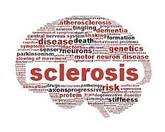Biosimilars
Amgen submits trastuzumab biosimilar to EMA
Biotech giant Amgen announced during a conference presentation that it had filed for marketing approval for its trastuzumab biosimilar (ABP 980) in the European Union (EU).
Study of top-down infliximab use in children with Crohn’s disease
The Erasmus Medical Center, in collaboration with the Netherlands Organisation for Health Research and Development and biosimilars maker Hospira, now Pfizer, is carrying out a study to investigate the benefits and risks of the use of infliximab as first-line use for children with active perianal fistulising Crohn’s disease [1].
Evidence on biosimilar efficacy and safety leads to ASAS/EULAR recommendation
A study of biological disease-modifying anti-rheumatic drugs (DMARDs) in patients with axial spondyloarthritis (axSpA) found no reason for physicians not to prescribe infliximab biosimilars [1].
Pharma associations issue position paper on biosimilar switching
The European Federation of Pharmaceutical Industries and Associations (EFPIA), European Biopharmaceutical Enterprises (EBE) and the International Federation of Pharmaceutical Manufacturers and Associations (IFPMA) have issued joint guidance for prescribers on switching between originator biologicals and biosimilars.
Improving efficacy of biologicals without increasing cost
Biologicals targeting antitumour necrosis factor-α, such as Remicade (infliximab) and Humira (adalimumab), have been used for the treatment of chronic inflammatory diseases for many years. The advent of biological therapies raised significant pharmacoeconomic concerns, because the cost of biological treatment is much higher than the cost for conventional treatments, typically Euros 10.000‒20.000 per patient per year. This is an issue discussed by Professor Ann Gils from the Department of Pharmaceutical Sciences, KU Leuven, Belgium [1].
Global settlement clears a pathway for trastuzumab biosimilar
Generics giant Mylan Pharmaceuticals (Mylan) announced on 13 March 2017 that it had agreed to the terms of a global settlement with Genentech and Roche in relation to patents for Herceptin (trastuzumab), which provides Mylan with global licences for its trastuzumab biosimilar.
Savings to be made by using etanercept biosimilar in UK
A study of patients taking etanercept to treat rheumatoid arthritis or psoriasis in the UK has shown that there are substantial savings to be made by using the biosimilar [1].
FDA updates Purple Book for biologicals and biosimilars
On 21 February 2017, the US Food and Drug Administration’s (FDA) Center for Drug Evaluation and Research (CDER) announced the availability of an updated version of the ‘Purple Book’.
Russian approval for non-originator interferon beta-1a
Russian biotechnology company Biocad announced on 3 March 2017 that the Russian Ministry of Health had approved the company’s interferon beta-1a non-originator biological drug, BCD-033. The drug is a non-originator biological of Merck’s multiple sclerosis blockbuster Rebif (interferon beta-1a).
Positive results for infliximab biosimilar in Crohn’s disease
Results of a phase III study of Celltrion’s infliximab biosimilar (Remsima; CT-P13) ‘indicate that the safety and efficacy of CT-P13 in patients with moderate-to-severe Crohn’s disease is comparable to those treated with reference infliximab’.













